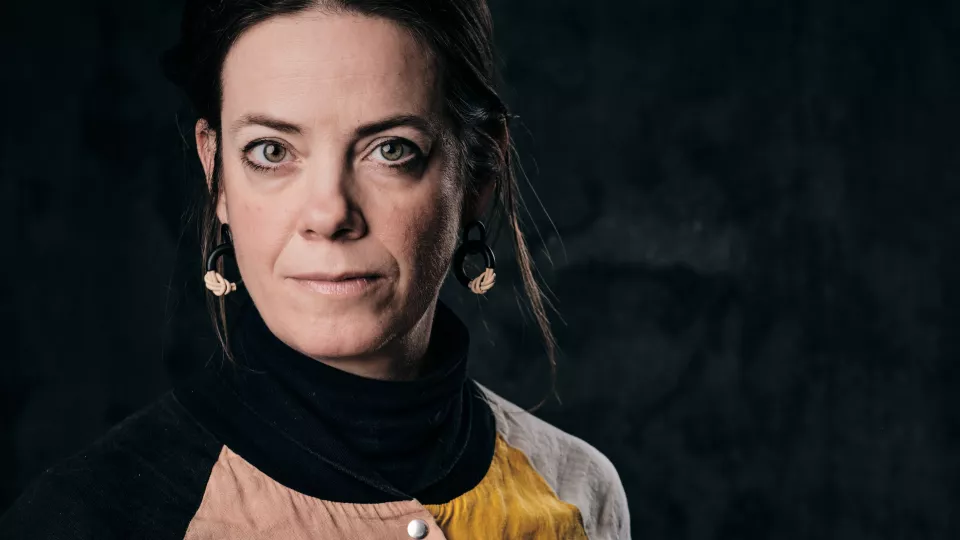What is your background and research interests?
When I was I child I was a bad sleeper, because I was listening. My ears just would not sleep, trying to understand all the overheard background sounds that came into focus during nighttime. When human sounds quieted a new life emerged. This inexhaustible mystery of sound and listening has been my primary passion and interest ever since. I am a composer, sound artist and associate professor of Sound Studies at Aarhus University. My practice-based PhD dissertation in Audio Design was focused on the soundscape in Danish hospitals. Since then I have worked in the intersection of health and soundscapes in e.g. nursing homes and sensory birthing rooms and other complex multi-sensory and vulnerable environments. I am engaged in developing sound technologies for alternative listening situations and sound environments for various public spaces. I am the co-founder, together with Morten Riis, of The Overheard presenting large scale sound sculptures in Denmark (www.overheard.dk). As a composer I have played in several bands, released albums, composed for TV, theatre and computer games and I just received Carl Nielsen and Anne Marie Carl-Nielsens honorary award.
What are your plans as a guest researcher at the institute?
I am so happy to be back at Lunds University, where I was visiting researcher at the Sound Environment Centre in 2021. In this theme about sound and democracy I look forward to develop further the concept of “sonic citizenship” that I have worked with lately. Sonic citizenship, as I see it, is closely related to the theme of Sound of democracy as it explores the many ways in which we shape the aural background of each other within the rhythms of our daily lives, and how citizenship is both practiced and maintained through sonic activities. Given the trans-liminal nature of sound, the auditory boundaries between the private and the public, as well as between the individual and the community, are continuously transcended.
In this theme about sound and democracy I look forward to develop further the concept of “sonic citizenship” that I have worked with lately. Sonic citizenship, as I see it, is closely related to the theme of Sound of democracy as it explores the many ways in which we shape the aural background of each other within the rhythms of our daily lives, and how citizenship is both practiced and maintained through sonic activities.
How do you hope to benefit from your work with the Theme?
I think that the transdisciplinary meeting in the theme-group is crucial when discussing complex themes such as Sound and Democracy and Sonic Citizenship. I hope that when we meet across disciplines in discussions about how we engage with and adapt to our communities in an auditory sense, we can develop together questions like: who within the community holds the privilege to raise their voice (to speak), the right to be heard (to be listened to), and how we, through negotiation and regulation, harmonize with each other. We also explore the idea of "the other" in sonic terms—who do we hear as "the other"? Who qualifies as a sonic citizen, and who is displaced sonically, akin to sonic refugees?
What do you reckon your main contribution to the Theme will be?
I hope that my practice-based approach e.g. my work in hospitals and other health care contexts as well as my experience in music and sound-production can contribute with a design- and artistic perspective. E.g. we have tested how the Soundscape Approach as described in the new ISO-standards on soundscape can work in practice which open up many questions on the “translation” between theory and practice (the Know-Do gap).


